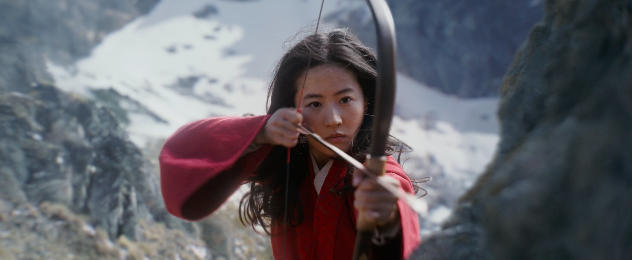Disney magic fails to cover up horrifying injustice
Disney’s Mulan actress, Liu Yifei, has previously starred in various Asian films.
Six months after its postponement in movie theaters due to the coronavirus pandemic, Disney has announced that “Mulan” will be available to stream Sept. 4 for $29.99 on Disney’s streaming service, Disney Plus. Starting Dec. 4, all Disney Plus subscribers will have access to the film, but that doesn’t mean they should watch it.
The film became controversial when #BoycottMulan began trending on Twitter after lead actress Liu Yeifei expressed her support for the Chinese government amid pro-democracy protests in Hong Kong on Weibo, a Chinese social media site.
“I support Hong Kong’s police, you can beat me up now,” she posted, then added in English, “What a shame for Hong Kong.”
Yeifei’s alarming comments aren’t the only reason for the boycott. Disney, placing profits first, filmed a few scenes in Xinjiang, a region of China accused of widespread abuse of the Uyghur Muslim population.
Within the film’s credits, Disney included a “special thanks” to eight different government bodies located in Xinjiang, including the Chinese Communist Party’s propaganda department and a public security bureau in Turpan, where multiple internment camps holding Muslims have been accused of residing.
While most activists calling for the boycott have been from Hong Kong, Thailand, and Taiwan, deemed the “Milk Tea Alliance,” Americans should also pay attention to these pro-democracy protests and boycott “Mulan” as well.
After all, the United States is a democracy and time and time again interfered with China to support democractic values. In June 1989, after the Chinese government sent in military troops into Tiananmen Square in Beijing to clear demonstrations demanding democratic reforms, the U.S. government suspended military sales to Beijing. In November of last year, President Donald Trump signed the Hong Kong Human Rights and Democracy Act that allows for the U.S. to sanction those responsible for human rights abuses in Hong Kong.
“There’s always an issue somewhere in the world,” said Alan Horn, a chairman of Disney Studios. “We [Disney] try to be non-political, apolitical when it comes all to this stuff.”
Since the U.S. has already admitted support for the pro-democracy demonstrators in Hong Kong, the U.S. should continue to do so, even in the smallest of ways. A film led by an actress who endorses police brutality in Hong Kong and filmed in places accused of heinous human rights abuses shouldn’t make a profit off an American audience.
“Devastatingly, Disney’s support amounts to collaboration and enables repression,” said Rayhan Asat, an Uyghur lawyer. “Those who claim to champion freedom in the world cannot afford to ignore such complicity.”
The decision to choose an actress who is pro-Beijing and to film in controversial places was likely Disney’s way to ensure the film would not be censored in mainland China and soar at the box office there.
Horn admitted, “If ‘Mulan’ doesn’t work in China, we have a problem.” So, save your $29.99 and stream a different movie.

Hi y'all! My name is Elle. I am majoring in Communication with double minors in Spanish and Journalism. I have wanted to be a writer ever since I was a...







